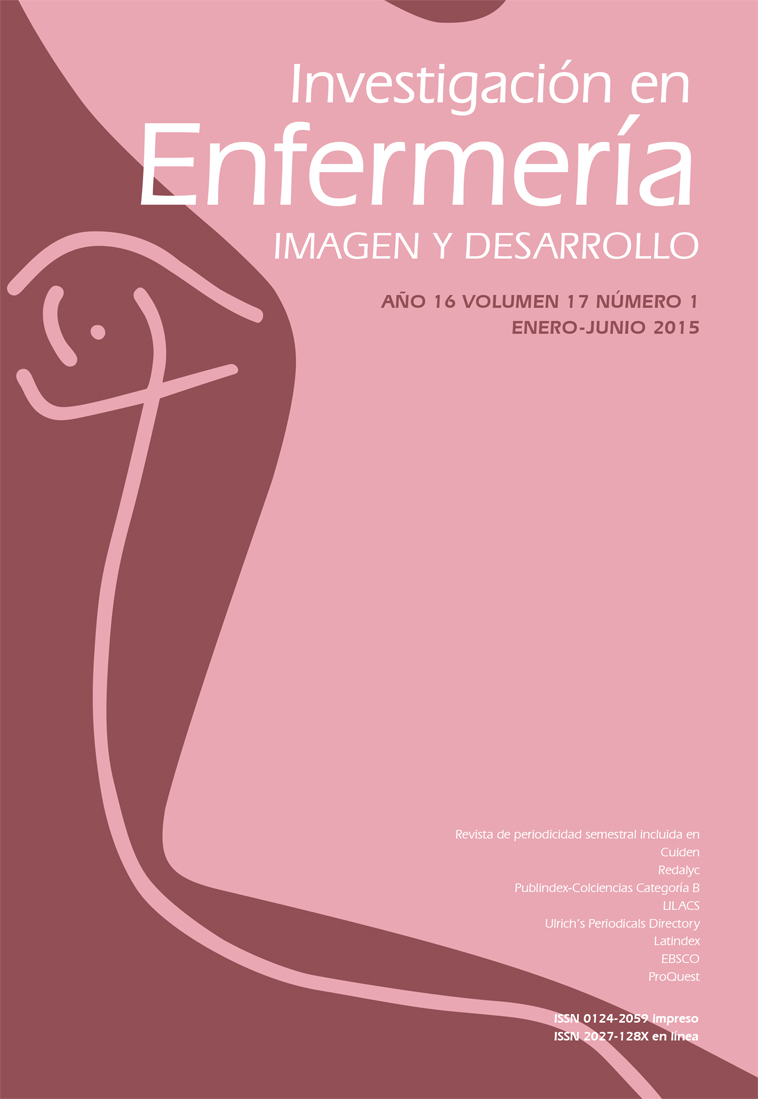Resumen
Objetivo: Describir y comparar por sexo la calidad de vida percibida por los adultoscon enfermedad diabética tipo 2, pertenecientes a instituciones de salud del primernivel de atención. Metodología: Estudio cuantitativo descriptivo, transversal, conuna muestra constituida por 287 pacientes que cumplieron los criterios de inclusióny aceptaron participar en el estudio mediante expresión verbal del consentimientoinformado. Para recolectar la información se utilizó el cuestionario de Diabetes Qualityof Life, que permite conocer la calidad de vida del paciente diabético, mediante lavaloración de las subescalas satisfacción con el tratamiento, impacto del tratamiento,efectos sociales y vocacionales, efectos futuros de la enfermedad y bienestar general.Resultados: De los pacientes diabéticos tipo 2 que participaron en el estudio, el62,3 % tenía una calidad de vida media, respecto a la percepción subjetiva del estadode salud, el 46,7 % consideró tener un estado de salud bueno. En la relación de laspuntuaciones promedio obtenidas en cada una de las subescalas, la más afectadaes la del impacto en el tratamiento con una puntuación directa promedio de 41,1 yla menos afectada es la preocupación por los efectos futuros de la enfermedad, con9,9. Conclusión: El estudio mostró que los 287 pacientes diabéticos tipo 2 percibenque la calidad de vida no se afecta en gran medida por la presencia de la enfermedad.
La revista Investigación en Enfermería. Imagen y Desarrollo se encuentra registrada bajo la licencia Creative Commons Reconocimiento 4.0 Internacional. Por lo tanto, esta obra se puede reproducir, distribuir y comunicar públicamente en formato digital, siempre que se reconozca el nombre de los autores y a la Pontificia Universidad Javeriana. Se permite citar, adaptar, transformar, autoarchivar, republicar y crear a partir del material, para cualquier finalidad (incluso comercial), siempre que se reconozca adecuadamente la autoría, se proporcione un enlace a la obra original y se indique si se han realizado cambios. La Pontificia Universidad Javeriana no retiene los derechos sobre las obras publicadas y los contenidos son responsabilidad exclusiva de los autores, quienes conservan sus derechos morales, intelectuales, de privacidad y publicidad.
El aval sobre la intervención de la obra (revisión, corrección de estilo, traducción, diagramación) y su posterior divulgación se otorga mediante una licencia de uso y no a través de una cesión de derechos, lo que representa que la revista y la Pontificia Universidad Javeriana se eximen de cualquier responsabilidad que se pueda derivar de una mala práctica ética por parte de los autores. En consecuencia de la protección brindada por la licencia de uso, la revista no se encuentra en la obligación de publicar retractaciones o modificar la información ya publicada, a no ser que la errata surja del proceso de gestión editorial. La publicación de contenidos en esta revista no representa regalías para los contribuyentes.


